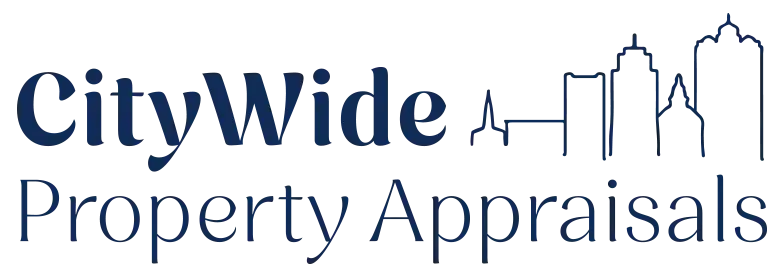The Most Popular Appraisal and Valuation Methods Explained
Understanding Standard Appraisal Approaches in New Haven, CT
At CityWide Property Appraisals, we know how crucial it is to determine the true value of your home or investment property. Obtaining a professional appraisal provides an objective and accurate assessment of that property’s worth. Our expert appraisers use industry-standard methods combined with our experience specifically around New Haven, Connecticut, to ensure reliable and fair valuations.
There are three primary appraisal methods—Sales Comparison Approach, Cost Approach, and Income Approach—each suited for different property types and scenarios. Understanding these methods will help you make informed real estate decisions and appreciate why professional appraisals in New Haven are indispensable.
How Appraisal Methods Started
Real estate appraisal methods have evolved alongside the housing market. The Sales Comparison Approach became widely used in the mid-20th century as suburban home sales increased, offering an efficient way to determine residential values. The Cost Approach has roots in construction cost assessments, making it an essential tool for valuing new builds and historic homes. The Income Approach emerged with the rise of real estate investment, helping investors analyze rental properties and commercial real estate profitability.
Today, these three core methods remain the foundation of property valuation not only in Connecticut, but across the US and internationally, ensuring buyers, sellers, and lenders receive accurate assessments based on market trends, building costs, and investment potential.
Sales Comparison Approach: How Homes Are Valued
in New Haven
For residential properties, the Sales Comparison Approach (SCA), also known as the Market Approach or Comparable Sales Approach, is one of the most widely used appraisal methods. This approach determines a home’s value by comparing it to recently sold properties (comps) with similar size, features, and location.
If you're selling your home in East Rock, Westville, or Downtown New Haven, this approach helps set a competitive price based on real, local market data, that is confined to the same neighborhood as often as possible.
When Is The Market Approach Used?
- Best for single-family homes, townhouses, and condos.
- Commonly used by lenders for mortgage approval.
- Helps sellers set a competitive asking price.
Key Factors in Comparable Sales Approach:
- Comparable Sales (Comps): Recent sales of similar homes in New Haven, factoring in lot size, square footage, and condition.
- Adjustments: Features like updated kitchens, extra bedrooms, or larger lots can increase or decrease value.
- Local Market Trends: Demand, economic conditions, and seasonal fluctuations affect pricing.
Pros and Cons of the Sales Comparison Approach
| Pros | Cons |
|---|---|
| Reflects real-time market value based on actual sales data. | Limited accuracy if there are few recent sales in the area or the location is extremely rural. |
| Easy to understand and widely accepted by buyers, sellers, and lenders. | Unique properties with distinct features may be difficult to compare. |
| Works well in areas with frequent real estate transactions. | Market fluctuations can skew valuation results over time. |
Cost Approach: How Construction Shapes Property Value in Connecticut
The Cost Approach, sometimes called the Summation Approach or Replacement Cost Approach, calculates a property’s value based on what it would cost to rebuild it from scratch using current materials and labor.
If you own a historic home in Wooster Square or a newly developed property in Fair Haven, this approach ensures an accurate valuation, especially when comparable sales data is limited.
When Is the Summation Approach Used?
- Ideal for new construction, custom homes, and historic properties.
- Used for insurance valuations to determine replacement costs.
- Useful when comparable sales data is unavailable.
Components of the Replacement Cost Approach:
- Replacement Cost: The estimated expense of rebuilding the structure with similar materials and quality. This will take into account local construction costs and trends.
- Depreciation: Adjustments for physical wear and tear, outdated designs, or market shifts.
- Land Value: The estimated worth of the lot based on local sales data.
Pros and Cons of the Cost Approach
| Pros | Cons |
|---|---|
| Best for new properties or those with high reconstruction value. | Doesn’t factor in market demand or buyer perception. |
| Essential for insurance purposes to estimate replacement costs. | Older properties with significant depreciation can be difficult to value accurately. |
| Works well for unique or historic homes with no direct sales comparisons. | The actual selling price may differ from the estimated cost due to external market conditions such as high demand. |
Income Approach: How Investors Determine Property Value
For income-generating properties, the Income Approach also referred to as the Capitalization Approach or Investment Approach, is the preferred method. This appraisal technique determines property value based on rental income potential, expenses, and capitalization rates.
If you’re an investor evaluating a multi-unit rental near Yale University or a commercial space in Downtown New Haven, this approach helps determine whether the property is a worthwhile investment.
When Is the Capitalization Approach Used?
- Best for rental properties, apartment buildings, and commercial real estate.
- Helps investors assess return on investment (ROI).
- Allows lenders to evaluate cash flow potential.
Things Considered in the Investment Approach:
- Gross Income Potential: Expected rental income based on local market rates.
- Operating Expenses: Costs like property management, maintenance, taxes, and insurance.
- Capitalization Rate (Cap Rate): The expected ROI used to determine property value.
Pros and Cons of the Sales Comparison Approach
| Pros | Cons |
|---|---|
| Provides a clear financial outlook for investment properties. | Relies heavily on accurate income and expense projections. |
| Useful for multi-unit rentals and commercial buildings. | Market fluctuations can impact rental income estimates. |
| Helps investors predict cash flow and long-term profitability. | Not useful for owner-occupied homes with no rental income. |
Other Appraisal Methods
While the three primary approaches are widely used, other methods may be applied in certain cases:
- Hybrid Approach: A blend of two or more appraisal methods for a more precise valuation.
- Automated Valuation Models (AVMs): Digital algorithms used by lenders. However, this is less reliable than in-person appraisals.
Why You Need a Professional Appraisal
With fluctuating property values and evolving market conditions, obtaining a professional appraisal ensures you get a true, unbiased valuation. Our licensed appraisers at CityWide can help you:
- Maximize your home’s sale price
- Secure financing or refinancing approval
- Remove private mortgage insurance (PMI)
- Ensure fair property division in estate settlements
Get an Expert Appraisal with CityWide Property Appraisals
Understanding appraisal methods is helpful, but a certified appraiser in Connecticut ensures you get the most accurate, up-to-date valuation. Don’t risk overpricing or underpricing your property—schedule your expert appraisal with us today!
Call us now to book your professional appraisal in New Haven, CT!
Ready to work with CityWide Property Appraisals?
Let's connect! We’re here to help.
Send us a message and we’ll be in touch.
Or give us a call today at 475-338-3320








